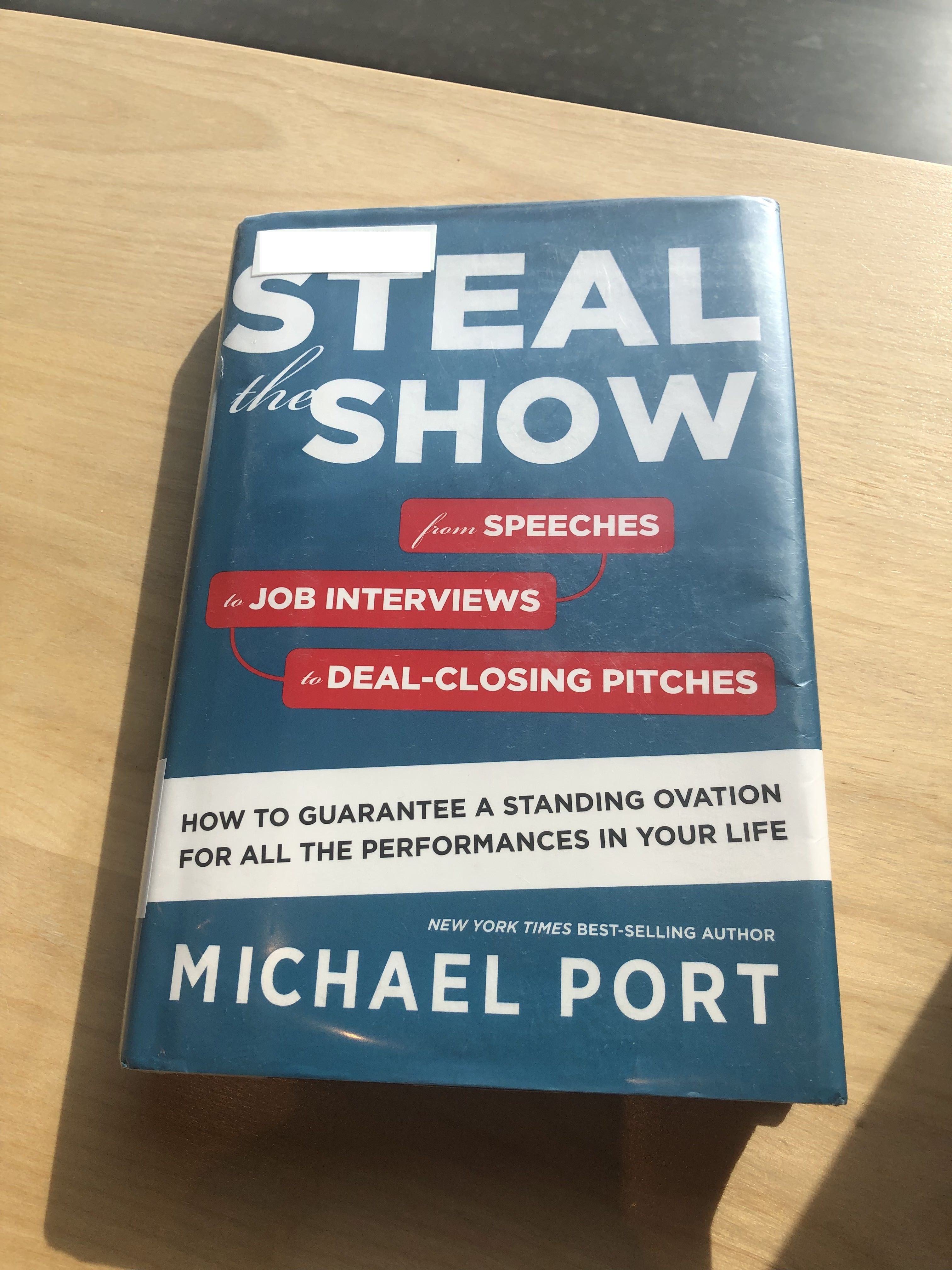📚 Steal the Show

Book Title
Steal the Show
(non-fiction | speaking)
Author
Michael Port
Review
Find Your Voice
Let go of the inner critic that tries to worry you about the fear of rejection.
It’s about saying Goodbye, thanks for sharing, to those inner voices carping
that you might not be ready, qualified, or worthy of the next opportunity.
Even if you’re saying something that’s already been said, it’s your voice that matters
You don’t have to be different to make a difference.
How many mothers sing the same lullabies to their children?
A baby doesn’t care half as much about the song as she does about the sound of her mother’s voice.
Be in the Moment
Why sound is one of the most important senses…
The auditory neuroscientist Seth Horowitz, author of The Universal Sense: How Hearing Shapes the Mind, wrote in the New York Times, “Listening is a skill that we’re in danger of losing in a world of digital distraction and information overload. And yet we dare not lose it. Because listening tunes our brain to the patterns of our environment faster than any other sense, and paying attention to the nonvisual parts of our world feeds into everything from our intellectual sharpness to our dance skills.”
Craft Captivating Pitches, Speeches, and Stories
A list of good speeches…
- Dr. Martin Luther King Jr’s. “I Have a Dream” speech
- Elie Wiesel’s 2011 commencement speech at Washington University
- Jill Bolte Taylor’s TED talk, “My Stroke of Insight”
- Oprah Winfrey’s 2008 commencement address at Stanford University
- Susan Cain’s TED talk, “The Power of Introverts”
- Seth Godin’s TED talk, “The Tribes We Lead”
Types of frameworks…
- The Problem/Solution Framework: illustrate a problem and offer a compelling solution
- The Numerical Framework: break ideas into numbered sections
- The Chronological Framework: follows a sequential timeline
- The Modular Framework: sections can be applied individually
- The “Compare and Contrast” Framework: differences between two major subjects
- The Three-Act Structure: Aristotle’s drama of situation-conflict-resolution
Important to…
- Cut, cut, cut!
- Cut to the chase: choose the strongest detail or example or data point at critical parts of your story.
- Audience often needs a lot less information to get to the “Aha!” moment.
- Don’t disrupt the rhythm with extraneous detail
Instead, make bullet points and then improvise…
- Improv: Yes and…
- Rehearse enough to be confident about the material
Cheeky Move
- Get the audience to shake their legs at the end of a public speech
- (as an audience, there are many times I wanted to stand but don’t want to be the one who starts it)
- Get a standing ovation ;)
-수완-